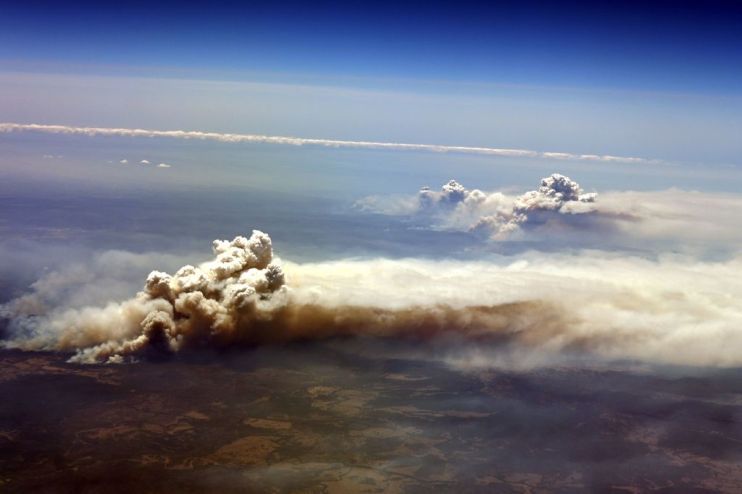Global emissions must be cut 7.6 per cent a year to meet Paris targets

Unless greenhouse gas emissions fall 7.6 per cent each year for the next decade, the world will miss its chance to limit the global temperature rise to 1.5 degrees celsius.
A new report from the United Nations environment programme (Unep) finds that on current pledges, the world is heading for a 3.2 degree rise.
Read more: No emissions peak in sight as greenhouse gas levels hit record high in 2018
Although G20 nations collectively account for 78 per cent of all emissions, only five members have committed to a long-term emissions target.
Of these, the UK and France are the only two to have passed legislation confirming their commitments in law.
Germany, Italy and the EU28 are currently in the process of passing laws to this effect.
The UN’s intergovernmental panel on climate change warned that going beyond the 1.5 degree rise agreed under the Paris Agreement in 2015 would increase the frequency and intensity of climate impacts.
UN secretary-general António Guterres said: “For ten years, the Emissions Gap Report has been sounding the alarm – and for ten years, the world has only increased its emissions.
“There has never been a more important time to listen to the science. Failure to heed these warnings and take drastic action to reverse emissions means we will continue to witness deadly and catastrophic heatwaves, storms and pollution.”
The report calls for all nations to substantially increase their Nationally Determined Contributions (NDCs), as the Paris commitments are known, in 2020.
Inger Andersen, Unep’s executive director, said: “Our collective failure to act early and hard on climate change means we now must deliver deep cuts to emissions – over 7 per cent each year, if we break it down evenly over the next decade.
“This shows that countries simply cannot wait until the end of 2020, when new climate commitments are due, to step up action. They – and every city, region, business and individual – need to act now.”
According to new data from the World Meteorological Organisation (WMO), the levels of greenhouse gases in the atmosphere have hit a new record high.
The WMO greenhouse gas bulletin, which was released yesterday, showed that average concentrations of carbon dioxide reached 407.8 parts per million in 2018, up from 405.5 parts per million in 2017.
Read more: UK tops G20 for decarbonisation rate but it won’t be enough
Although the UK currently leads the G20 in terms of its decarbonisation rate, a report from PwC last week found it would need to more than double its current rate of 3.7 per cent to 9.7 per cent if it is to achieve its 2050 target.
On Sunday the Conservative Party recommitted to its 2050 target for climate change.
Labour, which had suggested it would commit to net zero emissions by 2030 in its election manifesto, promised instead it would “the substantial majority of our emissions reductions by 2030 in a way that is evidence-based”.